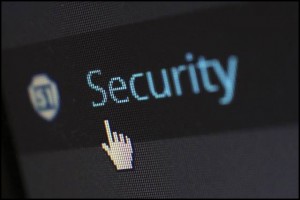 Viruses are one of the most common causes of computer trouble. Any LA computer repair shop will tell you they frequently see computers bogged down with malicious software, slowing down the system, making it freeze, or even making it unusable. Thankfully, there are some easy things computer users can do to keep their computers safe from viruses.
Viruses are one of the most common causes of computer trouble. Any LA computer repair shop will tell you they frequently see computers bogged down with malicious software, slowing down the system, making it freeze, or even making it unusable. Thankfully, there are some easy things computer users can do to keep their computers safe from viruses.
Here are four ways to help you avoid downloading viruses and malicious software.
Install an Antivirus Software — and Actually Use It
It seems like common sense, but having an antivirus software program on your computer can help reduce the number of viruses you download and help clean up some that have already worked their way into your system. Unfortunately, just having an antivirus program isn’t going to help too much. You’ll also need to keep the program updated and run regular virus scans.
Don’t Download Random Attachments
Once again, it sounds like pretty good common sense, however many viruses are spread through email attachments. If you don’t recognize the sender, be wary of opening any attachments. If you do recognize the sender but the email seems weird (jilted language or something vague like “here are the pictures from the party”) and you weren’t expecting any attachments from them, don’t download them.
Many viruses and malware are spread through email attachments. Some of these viruses then send viruses to the entire email contact list on an infected computer, spreading it further. You know your friends and your colleagues. Most likely, Bob from Accounting wouldn’t normally send you an email about pictures from that awesome party last night. Don’t be fooled by emails meant to bait you into downloading malicious code.
Block Pop-Ups Through Your Browser Settings
While some pop-ups can be useful (and some websites require them), we recommend you block pop-ups in your browser settings. Not only does this make for a more comfortable web browsing experience, but it lessens the likelihood of users being fooled by phony prompts and bad links. Pop-ups can generally be blocked in the security settings of a web browser.
Watch What You Click
Be careful what you click on. Even trustworthy sites can feature questionable advertisements that, once clicked on, may lead users into unsafe web territories. If you’re downloading something from the web, check where a link is sending you by hovering over it with your mouse before clicking. Sometimes websites have more than one “Download” button because advertisers make their ads look similar to the originating website.
Avoiding viruses can be simple once you know what to watch out for. It’s important to make antivirus scans a part of your routine and to watch what you’re downloading or clicking on. Unfortunately, virus makers are consistently upping their game and coming out with bigger, badder bugs to trick unsuspecting folks into giving up private information. If you think you may have a virus on your computer and are unsure how to deal with it, a knowledgeable computer repair technician will be able to help you out. Your local computer repair shop can generally provide in-home computer repair, making it easy to get your computer running optimally.
 Over 50,000 customers served!
Over 50,000 customers served!




